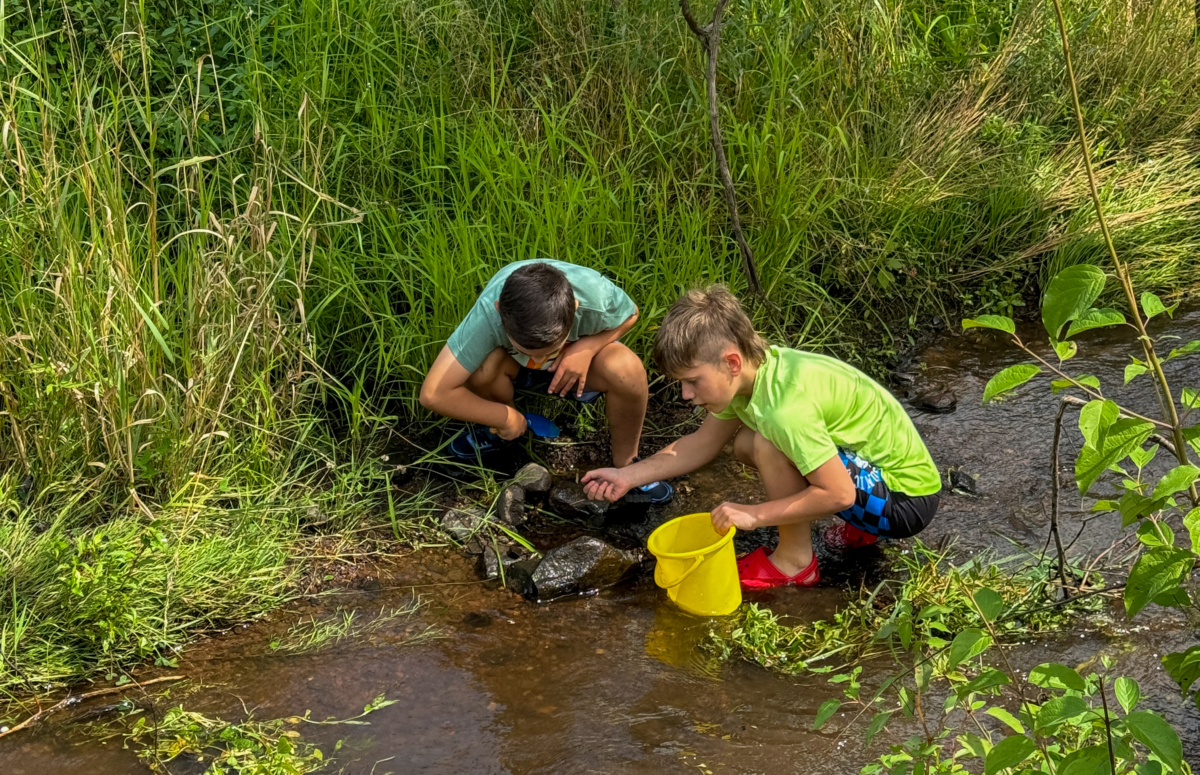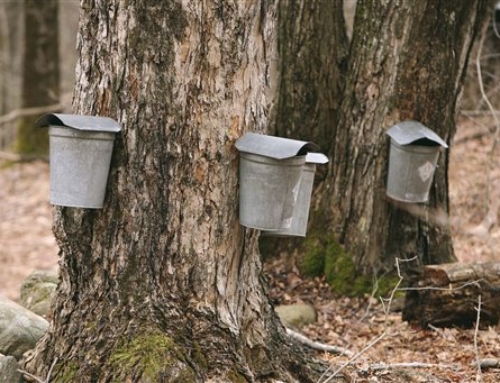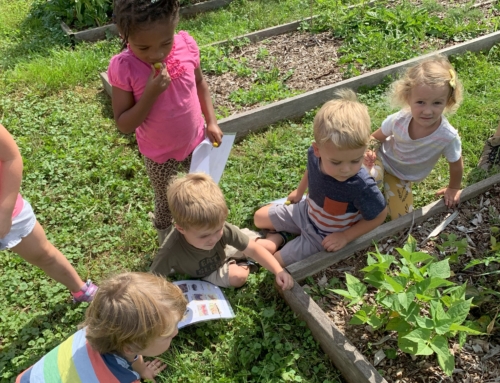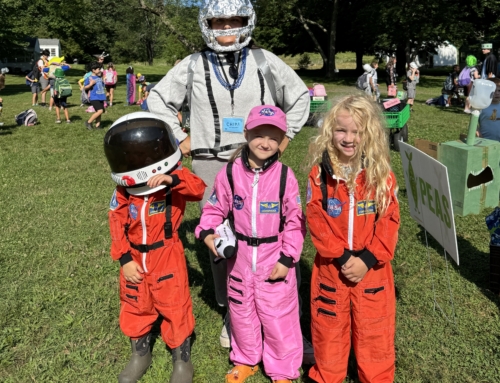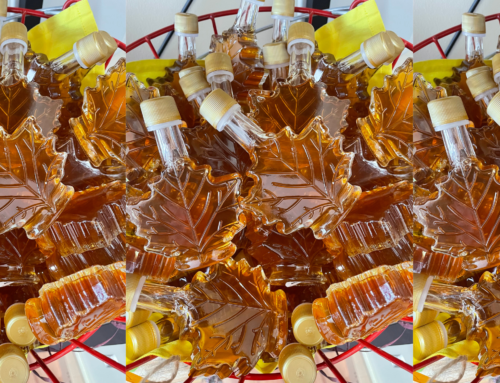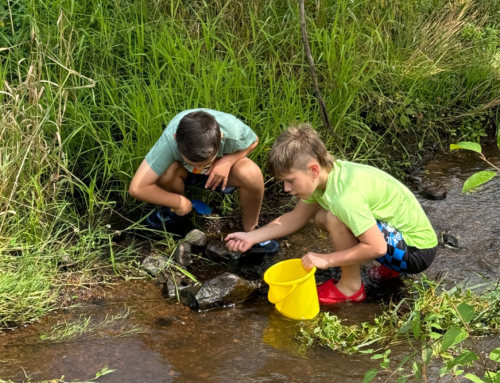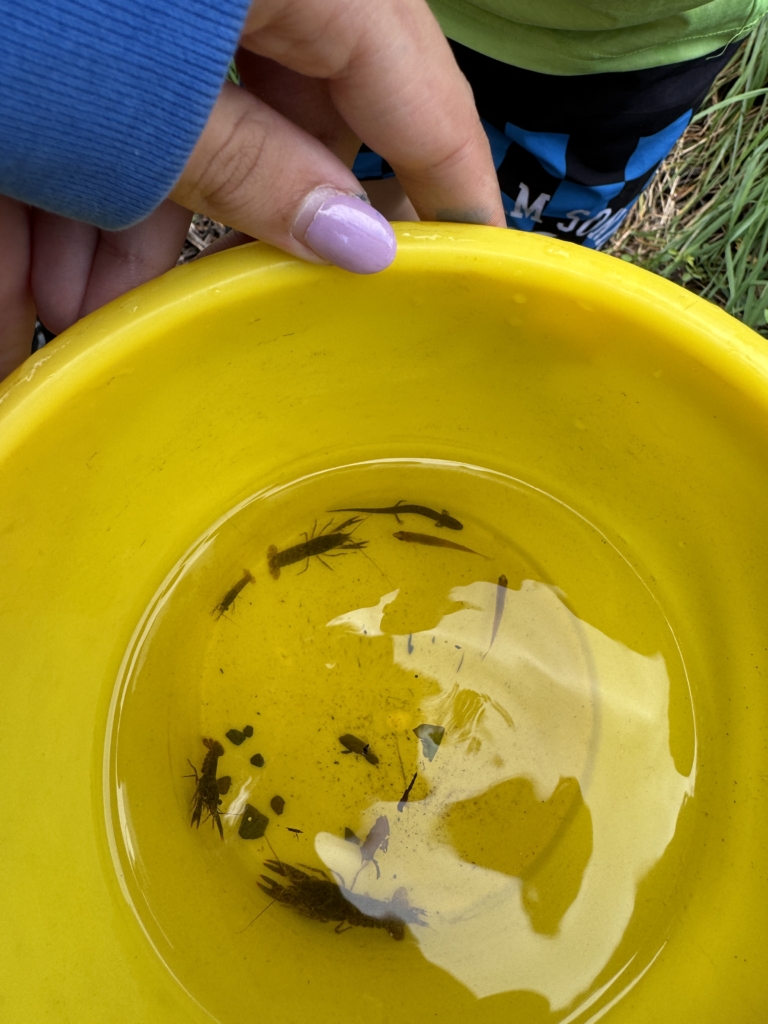
“It’s a lizard!” “It’s a salamander!” “It’s a Dicamptodon,” said Chiki, holding out her phone. She had taken a picture of the small stream creature the students had caught and looked up the exact type. “It’s a type of brook salamander,” she explains, “That’s the first one I’ve seen around here, nice job!” she high-fives the student.
Splashing, laughter, and the occasional reminder to share could be heard in the stream that courses through Auerfarm. A group of 14 fourth graders from McAlister Intermediate School in Suffield and Montessori Magnet School at Batchelder in Hartford participating in the Interdistrict Camp Program at Auerfarm worked together to catch minnows, crayfish, and anything else they could find in the water. Knee-deep in muddy water was Chiki Santillan, a seasoned assistant camp director who enjoyed the stream probably more than the students did. Up on the bank was Hayley Yaros, the slightly more responsible of the duo in charge of the “Daisies” group, a name the pair had affectionately chosen together.
Santillan and Yaros have worked together at farm camps every summer for the past nine years, having spent the last five at Auerfarm. Recently promoted to co-assistant camp directors the two have revamped the camp’s programming to foster an environment of play-based learning through a social-emotional framework.
“We try to create a place where kids are free to be themselves and are free to explore. That’s where you draw out their natural curiosities about the world and can teach them things based on what they’re interested in,” said Santillan. “Taking ownership in their education gives them a sense of confidence that will propel them forward in life.”
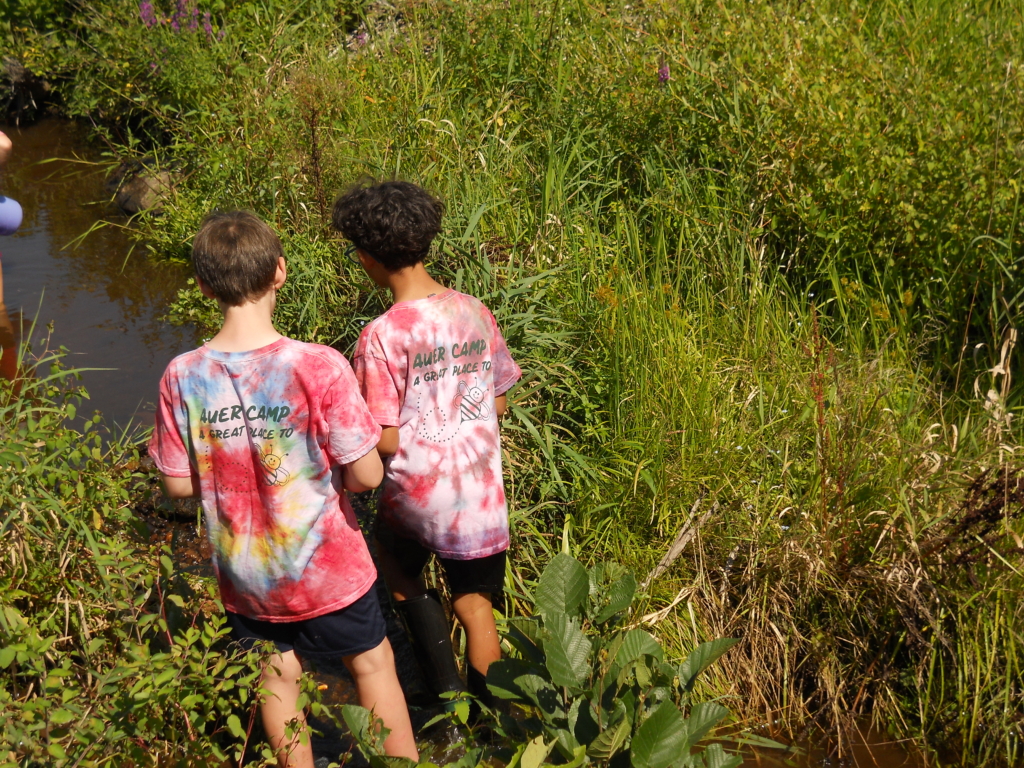
This grant-funded interdistrict program brings students from a rural and urban school together to reduce the racial, ethnic, and economic isolation of students and create spaces where students can gather, interact, and learn together in a week-long camp program. Each morning started with a morning meeting and a game. The game would be about team building, inclusion, and communication. Students would have to work together towards a common goal. This helped to observe differences amongst the group and break down any barriers. It helped to reach a common ground. Then students would move into their explorations; either the barn, stream, garden, or a science exploration. In the barn, students brushed donkeys and learned about animal safety. They walked goats and observed chickens. In the gardens, students learned about edible and medicinal weeds. They learned about plant dyes and flower pressing. In a science exploration students collected water samples from different areas of the farm and examined the contents under a microscope to record their observations.
However, the most beloved aspect of the program was exploring the stream every day. Every student enthusiastically participated when at the stream. The group arrived with shovels, nets, trowels, and buckets in tow ready to fish. Before each stream session, the students received a talk on respecting habitats and the wildlife that call the stream home. With that, they were off to see what they could find for the day. Many crayfish and tadpoles were caught, the occasional frog or toad, and for one brave soul, a baby water snake.
“The excitement from the students when they catch something, or the wonder on their faces when they place rocks in the stream and change the flow of the water are the windows of opportunity for learning. Why does the water change flow patterns? What is it that we caught? Why was it found here and not there? You introduce the topic by playing in the stream, then we can zoom out and say ‘Okay, we can talk about habitats or the water cycle. Then you can expand that, and talk about water conservation, recycling, and the environment. And you’re connecting it back to the experience in the stream. They feel centered in what they are learning, they retain it better, and they have confidence in their intelligence,” said Santillan.
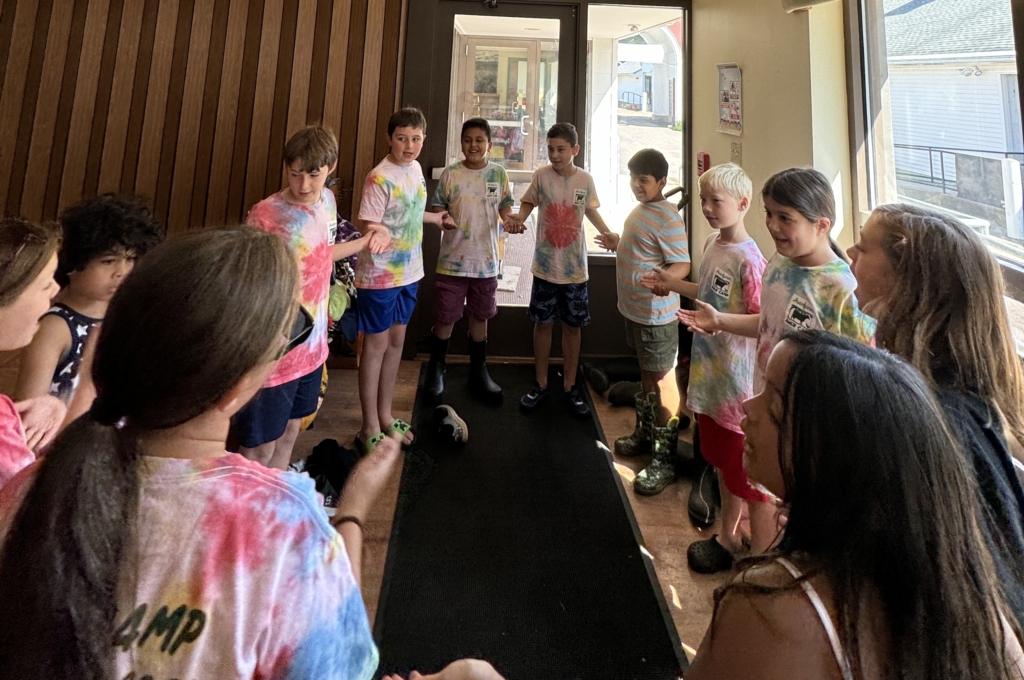
The interdistrict program at Auerfarm not only bridges the gap between urban and rural students but also fosters a deep connection with nature and scientific inquiry. As the day winds down, the students gather to share their discoveries and reflections. The excitement is palpable as they recount their adventures in the stream, the barn, and the gardens. This interdistrict program at Auerfarm stands as a shining example of how hands-on, experiential learning can break down barriers, inspire young minds, and cultivate a generation of environmentally conscious citizens. The program, like the stream itself, is a place of discovery, growth, and connection. It’s a testament to the power of nature and the importance of fostering a love for the natural world in our young people.
This article is part of Auerfarm’s Fall Appeal Newsletter. Programs like these are at the heart of our mission and with your support we can continue inspiring children and adults to engage in, learn about, and enjoy agriculture, science, and the natural environment.
———————————-
Interested in summer camps at Auerfarm? See our summer camps page here. Registration begins January 1st!

